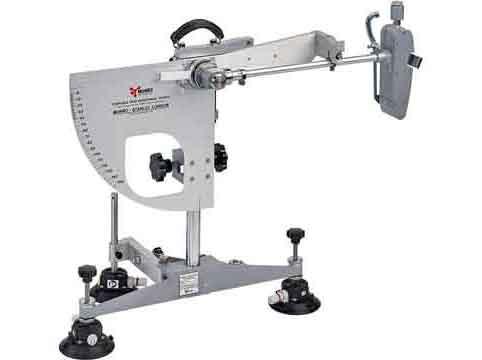Slips and falls are among the most common causes of accidents and injuries in workplaces, public spaces, and homes. Slippery surfaces pose a significant risk, especially in areas where there is high foot traffic or wet conditions. To minimize the risk of accidents, it is crucial to test the slip resistance of surfaces regularly. One of the most reliable methods of testing slip resistance is the British Pendulum Test.
This article will provide you with all the information you need to know about British Pendulum Testers, including how they work, their benefits, and why they are crucial for safety.
What Are British Pendulum Testers?
British Pendulum Testers, also known as Portable Skid Resistance Testers, are devices used to measure the slip resistance of surfaces. The device works by simulating the motion of a foot on a surface to determine the surface’s slip resistance. The test provides a value, known as the Pendulum Test Value (PTV), which measures the friction between the surface and the device’s rubber slider.
How Do British Pendulum Testers Work?
The British Pendulum Tester works by releasing a pendulum from a height of 90 degrees, which swings down and strikes the surface under test. The pendulum’s motion is similar to that of a heel striking the surface, simulating a person’s walking motion. The device’s rubber slider makes contact with the surface, and the pendulum’s motion is measured as it swings across the surface. The test provides a value between 0 and 100, with higher values indicating better slip resistance.
Benefits of Using British Pendulum Testers
Using British Pendulum Testers to test slip resistance has several benefits, including:
- Safety – Testing slip resistance with a British Pendulum Tester helps to ensure the safety of those who use the surface regularly.
- Compliance – The use of British Pendulum Testers is a requirement for many industries, such as construction, transportation, and healthcare, to comply with safety regulations.
- Cost-effective – Regular testing with British Pendulum Testers can help to identify slip hazards early and prevent accidents, saving costs associated with injury claims.
- Objective – The British Pendulum Test is an objective method of testing slip resistance that provides reliable and repeatable results.
Using British Pendulum Testers for Various Surfaces
British Pendulum Testers are used to test slip resistance on various surfaces, including:
- Floors – The most common use of British Pendulum Testers is for testing the slip resistance of floors in public spaces, workplaces, and homes.
- Stairs – Testing the slip resistance of stairs is essential for safety, especially in areas with high foot traffic.
- Ramps – Ramps can be particularly hazardous if they are slippery, making it essential to test their slip resistance regularly.
Slip Testing Service using British Pendulum Tester
Slip testing is a process that measures the slip resistance of surfaces, such as floors or walkways, to ensure they are safe for people to use. One common slip testing method is the British Pendulum Tester, which measures the dynamic coefficient of friction of a surface.
A slip testing service that uses the British Pendulum Tester can provide you with accurate and reliable data about the slip resistance of your floors or walkways. The tester uses a rubber slider that moves back and forth over the surface being tested, while a pendulum arm swings back and forth. The results of the test are recorded as a Pendulum Test Value (PTV), which can be used to assess the slip resistance of the surface.
Munro’s Slip testing can be particularly important in public places, such as airports, train stations, or shopping centers, where there is a high risk of slip and fall accidents. By using a slip testing service, you can ensure that your floors and walkways meet safety standards and reduce the risk of accidents.

